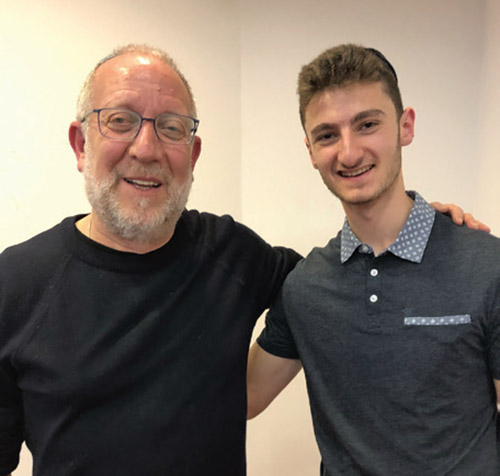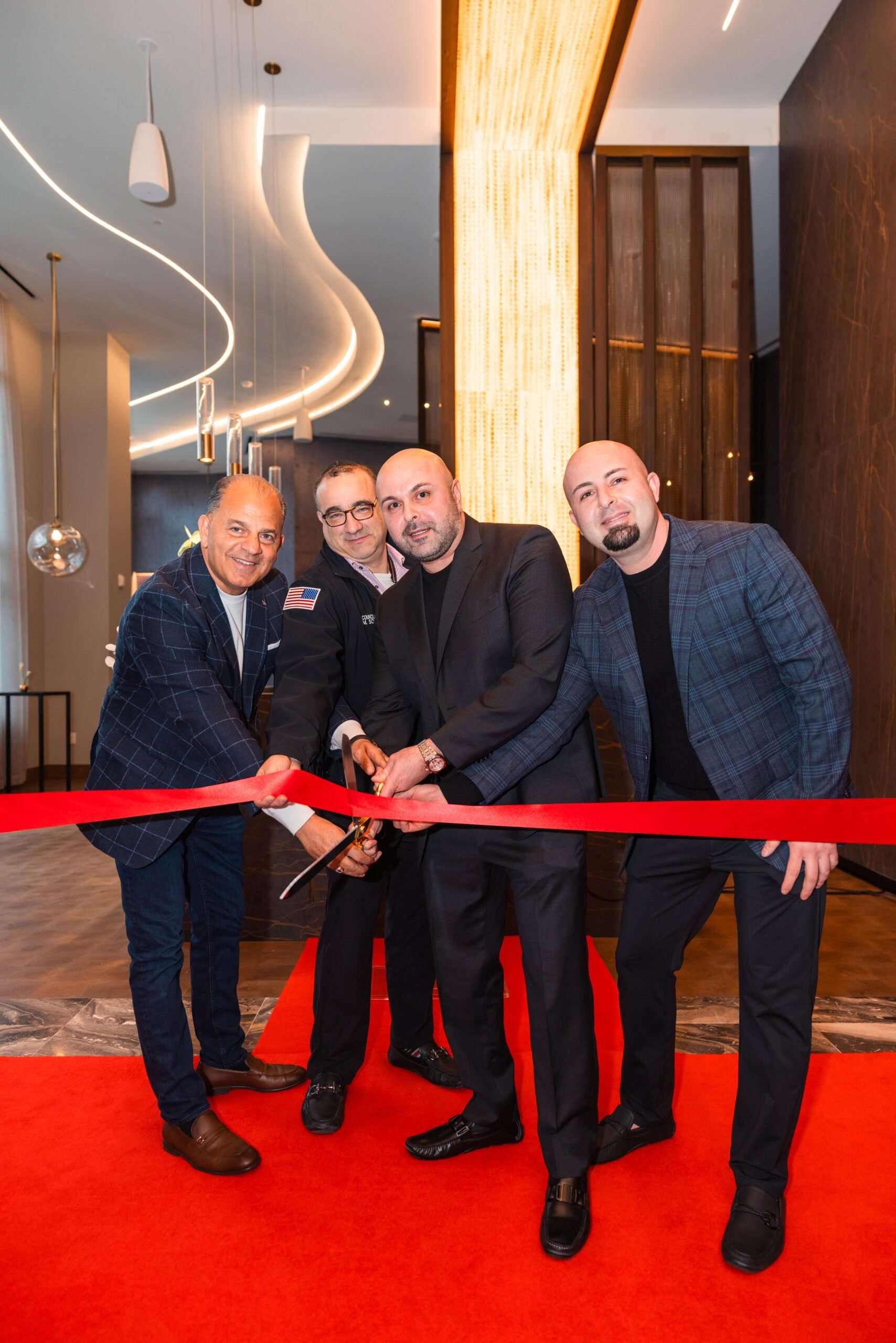


Is there a future for the two-state solution for Israel and the Palestinians? It’s one of a number of excruciatingly complex questions I and 43 other high school students confronted on an intellectual and spiritual journey to Israel in February as part of Write On For Israel, the Jewish Week-sponsored educational program.
We engaged with Israeli society, seeking to gain an in-depth understanding of the complexities facing the Jewish state. Many of us thought this knowledge would translate into clarifying our views of the Israeli-Palestinian conflict. But we soon realized that the more perspectives we heard, the more ambiguous and complex the issues became.
In recent years, I’ve been fascinated, perplexed, energized and most of all, frustrated with the conflict. When I shared that thought during our trip with one of the speakers, Professor Gil Troy, a prominent historian and author of the recent “The Zionist Ideas: Visions for the Jewish Homeland—Then, Now, Tomorrow,” he responded: “Welcome to Israel!”
Other Mideast experts we met with shared their own inner conflicts. “My two biggest fears in life are the establishment of a Palestinian state, and the lack of an establishment of a Palestinian state,” said Yossi Klein Halevi, who spoke to our group together with Palestinian journalist Khaled Abu Toameh. Halevi, author of last year’s “Letters to My Palestinian Neighbor,” reflects the feelings of many Israelis. They long for peace, democracy and security — not an easy combination.
Micah Goodman, a philosopher and author of “Catch-67: The Left, The Right, and the Legacy of The Six-Day War,” indicated why there is no end in sight to the conflict; every “solution” spells doom, he told us. Remaining in the occupied territories in the West Bank puts Israel’s democracy at risk; withdrawing from the territories puts Israel’s existence at risk. Goodman predicts that the conflict will never be solved. Ever. And yet he offers a ray of light, advising us to open the “conversation” — not about how to solve the conflict but rather how to “repair and shrink it.” How can we do that? Among his many other proposals, Goodman calls for maximizing Palestinian governance without jeopardizing Israeli security. “Small steps,” he said.
Prior to my trip, I was a staunch and unapologetic believer in a two-state solution. And I still am. I heard, however, a multitude of perspectives, ranging from Arab-Israeli teenagers to Riman Barakat, CEO of Explore Palestine, to Steve Garr, a member of a counter-terrorism unit in Gush Etzion, the Jewish settlement bloc where he lives. I began to realize that I harbored too many preconceived notions about both Palestinians and Jewish settlers.
The Arab teenagers I met, some of whom identify as Palestinian, were deeply kind and genuine in our brief interactions. They wanted peace. In a private moment with Garr, he told me he would give up land for real peace in a heartbeat. One caveat — he fears for his people’s safety, and for good reason. Past Israeli governments have made bold concessions for peace, only to be rewarded with intifadas and rockets. So when the Palestinian leadership incites violence and hatred, it’s hard to feel sympathy for them. Yet it’s important to recognize that while this hatred has been present for centuries, it has been emboldened by the ongoing occupation of more than five decades. As Israeli diplomat DJ Schneeweiss explained, the cause of the conflict is the centuries-long denial of the Jewish people’s right to a homeland. “The occupation is a symptom of the conflict, not the cause,” said Schneeweiss.
Do Israelis and Palestinians have profound differences? Absolutely. But aside from extremists on both sides, Israelis and Palestinians overwhelmingly want to see a divorce. That’s because, as I heard from so many people on both sides, it’s clear that peace is not likely now. No one is talking about it seriously. But Israel’s yearning to maintain its Jewish and democratic nature, and the Palestinians’ pursuit of statehood and self-determination, give me reason to be somewhat optimistic.
We all need to realize that neither side is disappearing, and we must focus on why we need each other. So that the Palestinians can finally have a state of their own and so Israelis can live in safety without having to compromise on their democratic values. And we need each other because there has been far too much bloodshed on both sides. The hard reality is that neither side will ever have everything they wish for. The decision is whether we continue to fight with no end in sight, or seek common ground so that our children can live in safety.
I don’t believe in a two-state solution as an ideal, but because morally, it is the only remotely feasible option. Klein Halevi told our group a hard truth: “We [the Israelis] cannot control the lives of other people [the Palestinians] forever.” He went on to declare that “one state is no state.” This is true, and horrifying.
What can we do? Have legitimate civil discourse, something that is hard to achieve in our country today. But conversations will not be enough. Painful concessions will be required on both sides. I believe Israel has done this in the past. Granted, it did not turn out well. But it’s time that we reintroduce the mere discussion of a two-state solution, elect better leaders and empower peace-seeking Palestinians. If we don’t … I can’t even go down that road; it’s just too painful to imagine.
Elie Jarashow is a senior at Torah Academy of Bergen County and a member of the 2019 Write On For Israel cohort.
By Elie Jarashow/The Jewish Week(Reprinted with permssion)











